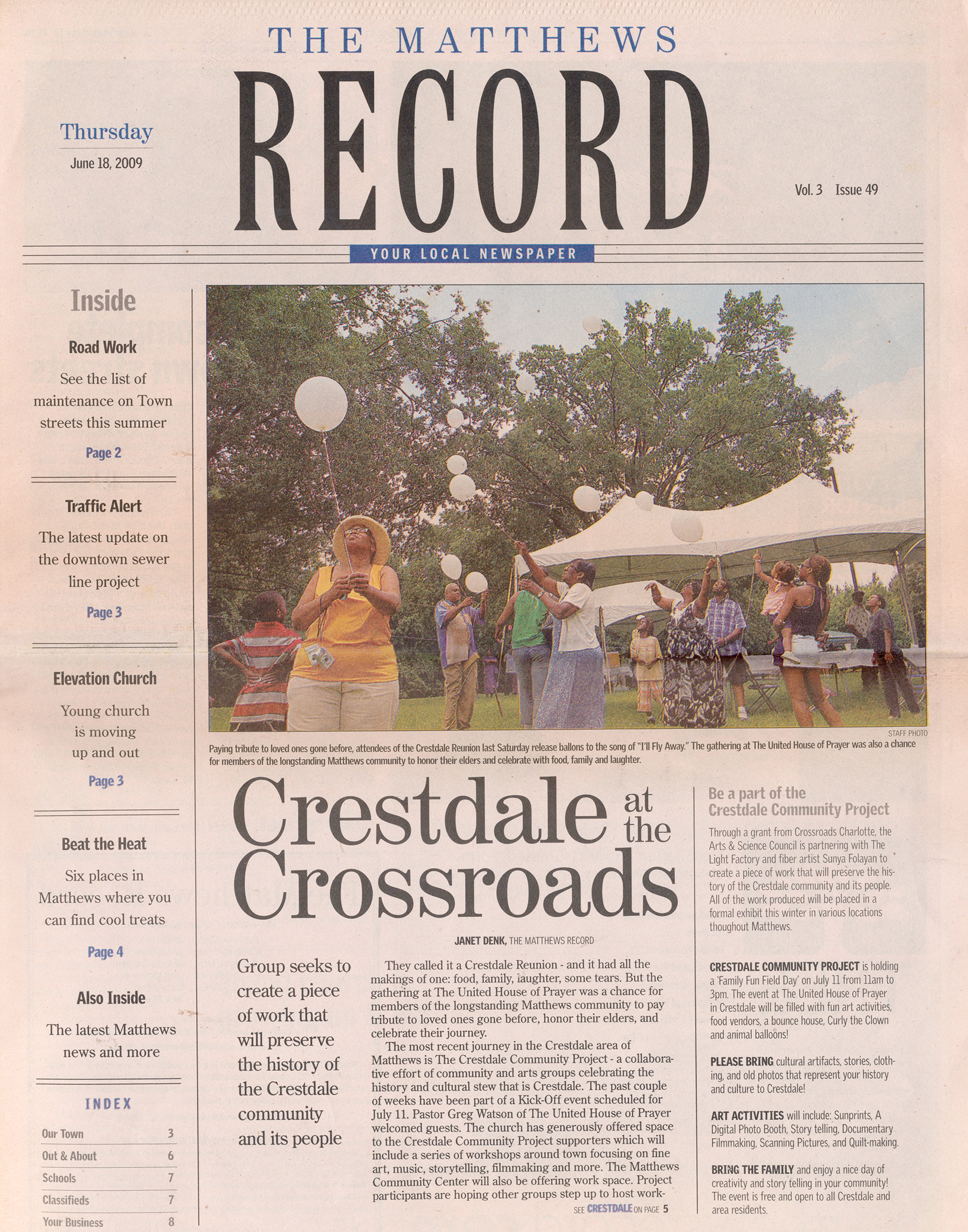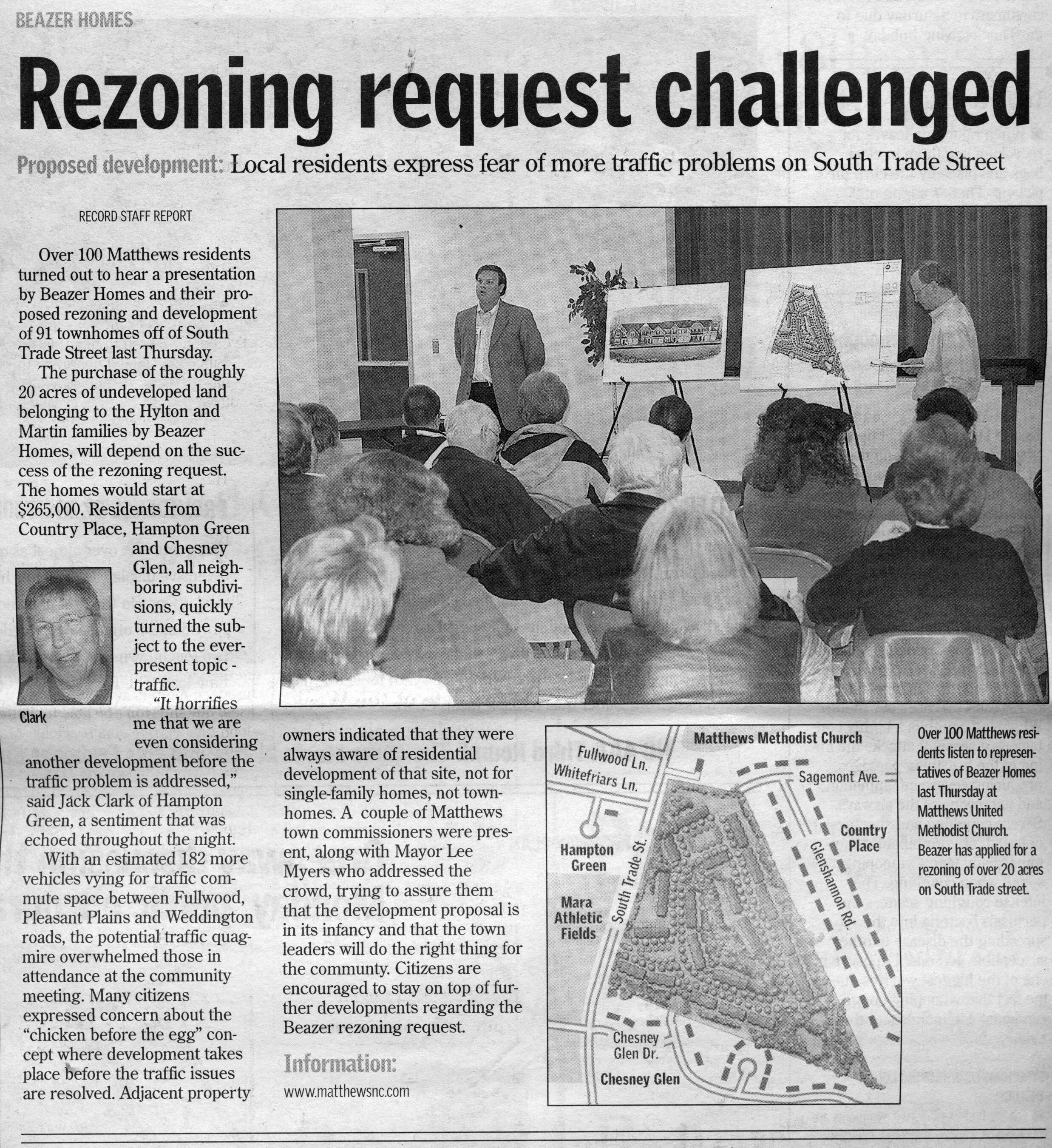With permission, The Beacon is archiving past issues of Matthews Record (also called Matthews News and Record and The Matthews Record) articles online. Throwback Thursday articles will include relevant content still facing Matthews today. This story was originally published June 18, 2009 and was written by Janet Denk.
Crestdale at the Crossroads
Group seeks to create a piece of work that will preserve the history of the Crestdale community and its people
They called it a Crestdale Reunion - and it had all the makings of one: food, family, laughter, some tears. But the gathering at the United House of Prayer was a chance for members of the longstanding Matthews community to pay tribute to loved ones gone before, honor their elders, and celebrate their journey.
The most recent journey in the Crestdale area of Matthews is The Crestdale Community Project - a collaborative effort of community and arts groups celebrating the history and cultural stew that is Crestdale. The past couple of weeks have been part of a Kick-Off event scheduled for July 11. Pastor Greg Watson of the United House of Prayer welcomed guests. The church has generously offered space to the Crestdale Community Project supporters which will include a series of workshops around town focusing on fine art, music, storytelling, film making, and more. The Matthews Community Center will also be offering work space. Project participants are hoping other groups step up to host workshops, too.
Through a grant from Crossroads Charlotte, the Arts & Science Council is partnering with the The Light Factory and fiber artist Sunya Folayan to create a piece of work that will preserve the history of the Crestdale community and its people. All of the work produced will be placed in a formal exhibit this winter in various locations throughout Matthews.
“It’s time that all the communities in the area come together in tribute to share the history and culture of Crestdale with the rest of Matthews, and the surrounding area,” said Walter Stewart, who was joined by Harvey Boyd and other life-long residents of the area who attended the first two meetings planned for The Crestdale Community Project.
The Crestdale neighborhood is one of the oldest African American communities in the nation, established soon after the Civil War. Located along the railroad tracks in Matthews, between old Highway 51 and Charles Street, the community has become home to a patchwork of different cultural communities. Habitat for Humanity Matthews is located within the Crestdale Community, including Fullwood Trace, a modest neighborhood of brick homes off Charles St. Sunrise Crossing is the newest development. Rainbow Ridge is home to many Montagnard families. Pronounced “mountain-yard,” the term is French for “mountain dweller” or “mountain people.” North Carolina is one of the largest settlements for Montagnards, who fought alongside US Special Forces during the Vietnam Conflict. Crestdale Crossing is a subdivision of one and two-story bungalow-style single family homes with green space shared by all. It was developed on land belonging to the Stewart family.
The Light Factory promotes the power of image by informing, challenging, and stimulating audiences using photography, film, and other light-based media to see their world through a different lens. It is located in Spirit Square in uptown Charlotte.













